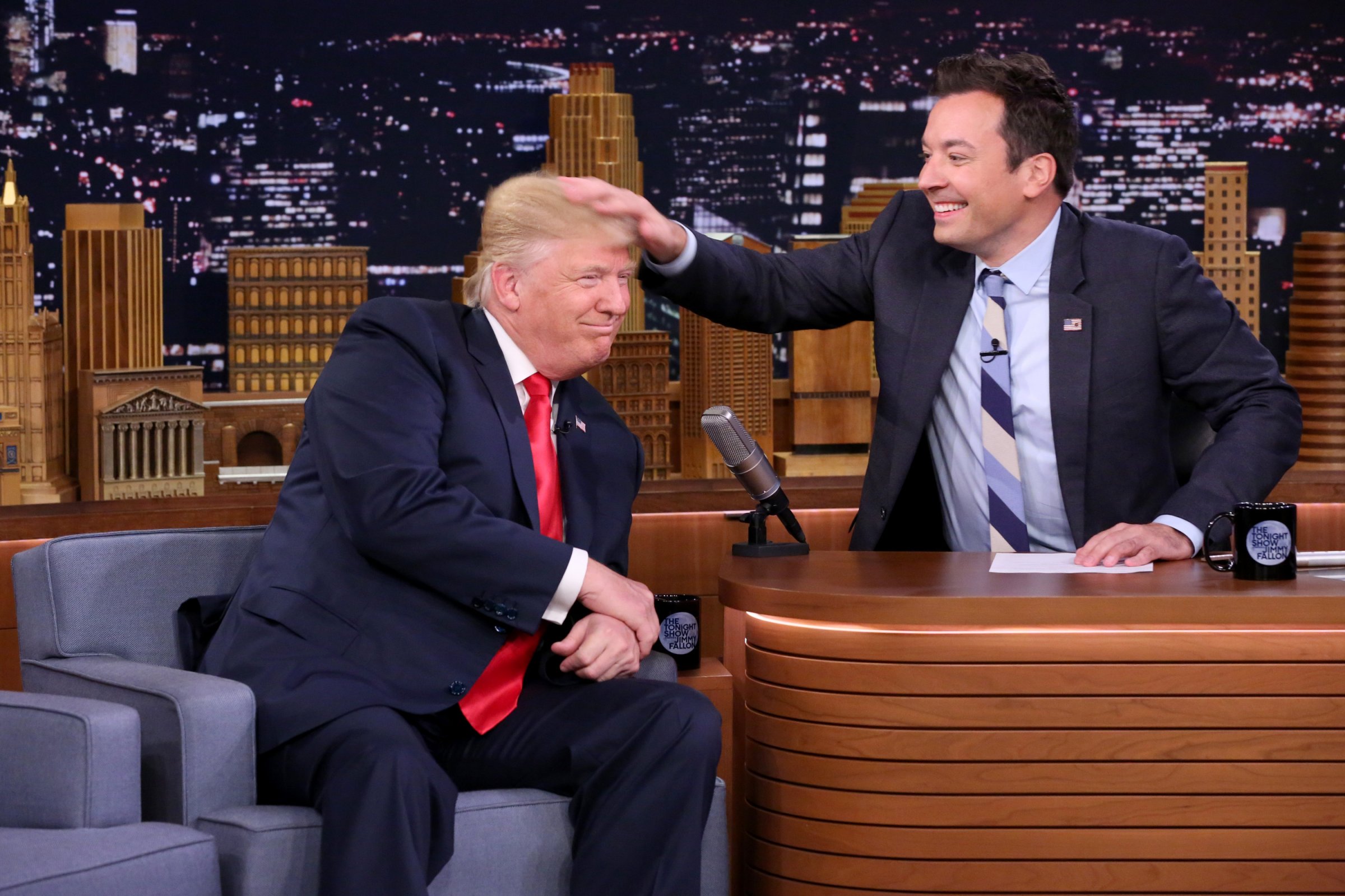
One of the few statements of regret I’ve seen from anyone in the TV industry came from Jeff Zucker—formerly President-elect Donald Trump‘s boss at NBC and now the head of CNN. Zucker stated that CNN “probably” should not have given unedited airtime to Trump’s rallies. I’m not sure that’s the problem I’d put first on my list of priorities: Broadcasts of rallies, though certainly disproportionate to the level of coverage Hillary Clinton received, had meaningful news value for Trump’s supporters and his detractors. Here, at least, was the candidate expressing his views.
I’m more baffled by Trump’s interactions with the entertainment side of the broadcast equation. On Saturday Night Live, on Fallon and Colbert, on Dr. Oz, the candidate went through an elaborate display of faux-contentiousness with shows that, in each case, was more curious about how to keep this ride going than what Trump’s rise would mean. SNL‘s cast members played off the host gamely enough, though Larry David, a guest, pretended to heckle him; Fallon challenged him, lightly, on Russia; Dr. Oz did not follow up meaningfully on any of Trump’s claims about his health. In these broadcasts, he was able to fit his persona within a recognizable framework; he could look fairly close to the norm. If this is the institutional position of those shows, that’s one thing, but in every case the shows made a great and effortful deal of appearing to closely scrutinize the candidate, with Fallon going so far as to conduct a fake job interview to arbitrate whether Trump was worthy of office. He accepted every answer with a laugh.
Trump’s presidency, in particular, will serve as a daily reminder of one of the most vexed periods in NBC’s history. After employing him for years as host of The Apprentice and airing his Miss USA pageant, the network fired him after he declared his run for president, citing inflammatory language about Latinos. But NBC then went on to feature him in its entertainment broadcasting, from a Saturday Night Live episode Trump hosted in November 2015, leading to a year of comic coverage that treated Trump and Hillary Clinton as equivalent figures, to a sunny-to-the-point-of-pointless Jimmy Fallon interview in September.
A successful politician appearing on entertainment shows is nothing new, but the message NBC sent in its programming was that Trump was unfit to be tied to NBC, except when he was a popular enough figure to boost ratings. Trump caught on tape having a vulgar and misogynistic discussion about women with NBC host Billy Bush was embarrassing enough to get Bush fired, but Fallon’s hair-ruffling moment was standard operating procedure.
It goes beyond NBC, of course—Stephen Colbert was solicitous of Trump in a September 2015 interview, and apologized to him for jokes at his expense before he eventually took a tougher comic view of the politician, leading to a grave, sad elegy ending his election night special.
Assigning much credit or blame to the media for the election of Trump seems specious in an era defined, we now know, by open revolt against that which is “establishment.” Had the media been tougher on Trump, would it have made a difference, given how many voters appear to get their news from Facebook algorithms? But it seems worthy to note that long before his election, Trump was effectively normalized by a TV industry that was fixated on a conception of the race as between two unsympathetic candidates who were equally unfit for office.
Television news, again and again, showed us the ways in which Trump was an abnormal candidate. Televised entertainment, less frequently but even more assiduously, worked to put such concerns to rest.
More Must-Reads from TIME
- Donald Trump Is TIME's 2024 Person of the Year
- Why We Chose Trump as Person of the Year
- Is Intermittent Fasting Good or Bad for You?
- The 100 Must-Read Books of 2024
- The 20 Best Christmas TV Episodes
- Column: If Optimism Feels Ridiculous Now, Try Hope
- The Future of Climate Action Is Trade Policy
- Merle Bombardieri Is Helping People Make the Baby Decision
Contact us at letters@time.com